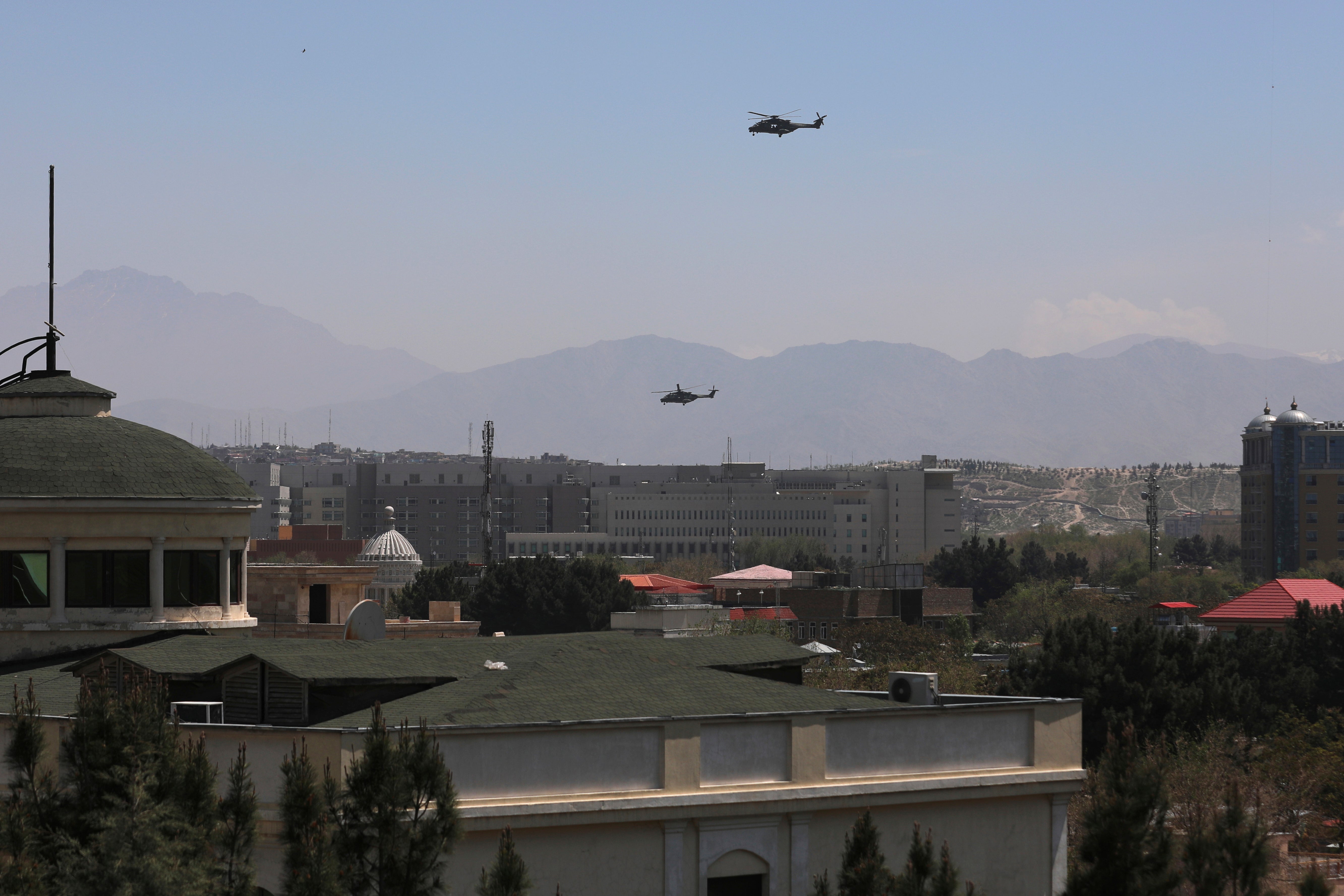General says Afghan withdrawal will make terror fight harder
The top U.S. general for the Middle East tells Congress it will be extremely difficult but not impossible for the U.S. to find, track and take out counterterrorism threats in Afghanistan once all American troops are withdrawn

Your support helps us to tell the story
From reproductive rights to climate change to Big Tech, The Independent is on the ground when the story is developing. Whether it's investigating the financials of Elon Musk's pro-Trump PAC or producing our latest documentary, 'The A Word', which shines a light on the American women fighting for reproductive rights, we know how important it is to parse out the facts from the messaging.
At such a critical moment in US history, we need reporters on the ground. Your donation allows us to keep sending journalists to speak to both sides of the story.
The Independent is trusted by Americans across the entire political spectrum. And unlike many other quality news outlets, we choose not to lock Americans out of our reporting and analysis with paywalls. We believe quality journalism should be available to everyone, paid for by those who can afford it.
Your support makes all the difference.In a blunt assessment Tuesday, the top U.S. general for the Middle East told Congress it will be extremely difficult but not impossible for the U.S. to find, track and take out counterterrorism threats in Afghanistan once all American troops are withdrawn.
Gen. Frank McKenzie head of U.S. Central Command, said that armed drones, which can now get to a location within minutes from bases in Afghanistan, will have to be positioned much farther away. And he acknowledged that the U.S. has no agreements yet with neighboring countries to base troops, but is working on a plan.
“I don’t want to make light of it, I don’t want to put on rose-colored glasses and say it’s going to be easy to do,” McKenzie told the House Armed Services Committee, adding that if the U.S. needs to go back into Afghanistan because of a threat, it will require significant intelligence support. “It will be harder to do that, it is not impossible.”
McKenzie declined to say what recommendations on Afghanistan he gave to President Joe Biden who last week ordered the full withdrawal of the more than 2,500 remaining U.S. troops by Sept. 11. He said he had full opportunity to provide his advice to the president.
U.S. officials have made it clear, however, that military commanders did not recommend the full, unconditional withdrawal. Military leaders have consistently argued that pulling troops out by a certain date eliminates pressure on the Taliban and weakens U.S. leverage in the peace talks with the group.
McKenzie told lawmakers that the U.S. would have several options if it needs to hit a target, including a long-range strike or the use of manned aircraft or a raid by ground forces, which would be “inherently dangerous.” Lawmakers pressed him for details and he said he would provide more specifics in a classified session.
Over the past year, as then-President Donald Trump pushed for a complete troop withdrawal, defense and military officials successfully argued that any pullout should be based on security conditions on the ground.
Asked about the previous administration's orders to withdraw troops, McKenzie quickly noted that Trump's command was “conditions based."
Biden's withdrawal date coincides with the 20th anniversary of the al-Qaida terror attack on the U.S. that had triggered the U.S.-led invasion of Afghanistan. NATO announced it would follow the same timetable for withdrawing more than 7,000 allied forces.
The president’s decision defies a May 1 withdrawal deadline that was agreed to by the Trump administration as part of a peace agreement with the Taliban. Instead, Biden said the U.S. withdrawal would begin on May 1.
McKenzie told lawmakers that terror groups in Afghanistan, including al-Qaida and the Islamic State group, continue to aspire to attack the U.S.
“I think that’s a reasonable concern and I share that concern frankly,” he said.
The Taliban have threatened to take action if the U.S. does not comply with the May 1 deadline.
McKenzie said the U.S. plans to aggressively protect the security of U.S. troops in Afghanistan as the withdrawal of personnel and equipment goes on. And he said the U.S. is prepared to take any action necessary.